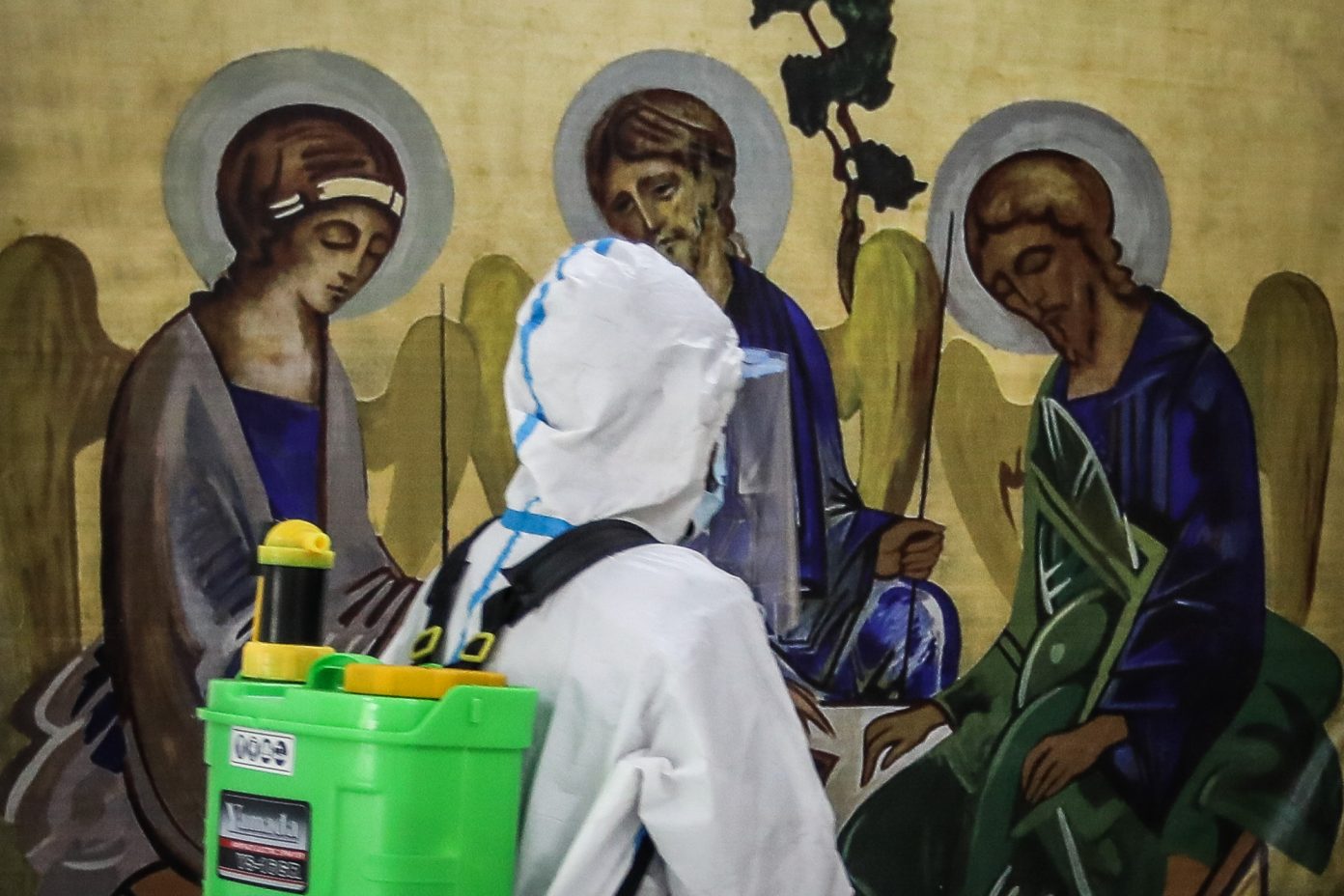Reflection for the 2nd Sunday of Advent (Cycle C)
In today’s readings on the second Sunday of the Advent season, John the Baptist is the central figure and symbolizes for all of us, the need to orient our lives in preparation. If there is any word that we may all permit to describe the essence of life, it is “preparation.” Life is intended as a preparation for death, a preparation for my own end, or for the end of space and time.
Not too few of us may readily agree to such a description, because “preparation” connotes “the readying of oneself for an end, without ever thinking about achieving it.” In other words, “preparation” may justify or even glorify one’s life “lacking in accomplishment,” which may actually have been wastefully spent in useless sloth.
Worldliness thus tends to orient us in an opposite direction, in which life ought to be spent and directed towards a conscious self-fulfillment, while leaving “preparation” for our perceived “final years.” This is the subtle meaning behind “living a life to the fullest” or “a life that must be lived in wellness,” before spending retirement in church organizations and social ministries.
John reminds us that life must be spent in a “preparation amid accomplishment.” A delicate balance has to be struck between living our lives for a fulfillment which we believe it is meant for, while at least being mindful of its inevitable finality. We may have to often think that every day is always a day closer to our death, and if we can more optimally orient – not separate nor detach – the object of our life’s fulfillment to its demise, then we may develop a human character particularly sensitive to an accountability for the fulfillment of the marginalized other. Without this balance, we forget and deny our mortality, always failing to prepare and only doing so when closure is imminent.
An awareness – sans gloominess or dread in thoughts or feelings – of the end and of the need to prepare for it, will always lead us to go beyond ourselves and beyond lives centered only on ourselves. Our lives will be emptied of the images we created and brought into it, and will instead be filled with more truth and authentic purposes. The Baptist preceded the Christ in reconfiguring what we must perceive not only to be our own personal ends, but of our common end that is the reign of God, of justice and peace forever. Therefore, the Spirit is prompting us not only to focus on shaping personal legacies, but on helping to shape the ultimate legacy of a better world for all.
Hence, life is most appropriately “preparation amid accomplishment in the context of conversion and service”: We live our lives in a continuous self-improvement so we can readily share these same lives with others. In faith, we profess that conversion and service, improvement and sharing will not be possible without the graces of the Spirit. Like John, we must help “prepare the way of the Lord,” “proclaiming a baptism of repentance for the forgiveness of sins.” Preparation becomes a courageous straightening of our crooked paths and a persistent trying not to catch ourselves in acts of injustice; while accomplishment eventually becomes a supporting of those being left behind and an aiding in the fight against acts of injustice towards others. In faith, we also profess that our Father ordained life to be as such, and nothing more.
God sent John to embody the call to preparation and conversion; and to herald the coming of his Son the Christ who will embody the life of accomplishment and service that must be prepared for. This sending carries with it the implicit warning that “God has commanded that every lofty mountain be made low, and that the age-old depths and gorges be filled to level ground, that Israel may advance secure in the glory of God”: His will be done on earth as it is in heaven; either we start straightening our crooked paths, or he will straighten it for us whether we like it or not.
The Lord is doing great things for the Church, guiding it “in joy by the light of his glory, with his mercy and justice for company”; and “although they go forth weeping, carrying the seed to be sown, they shall come back rejoicing, carrying their sheaves.” Though we may have to bear much suffering for the Word, we shall be vindicated by the Spirit. The Church “will be named by God forever the peace of justice, the glory of God’s worship.”
For us who are committed to live life according to how our Father ordained it to be, the Apostle Paul wishes, “And this is my prayer; that your love may increase ever more and more in knowledge and every kind of perception, to discern what is of value, so that you may be pure and blameless for the day of Christ, filled with the fruit of righteousness that comes through Jesus Christ for the glory and praise of God.”
Brother Jess Matias is a professed brother of the Secular Franciscan Order. He serves as minister of the St. Pio of Pietrelcina Fraternity at St. Francis of Assisi Parish in Mandaluyong City, coordinator of the Padre Pio Prayer Groups of the Capuchins in the Philippines and prison counselor and catechist for the Bureau of Jail Management and Penology.
The views expressed in this article are the opinions of the author and do not necessarily reflect the editorial stance of LiCAS.news.







